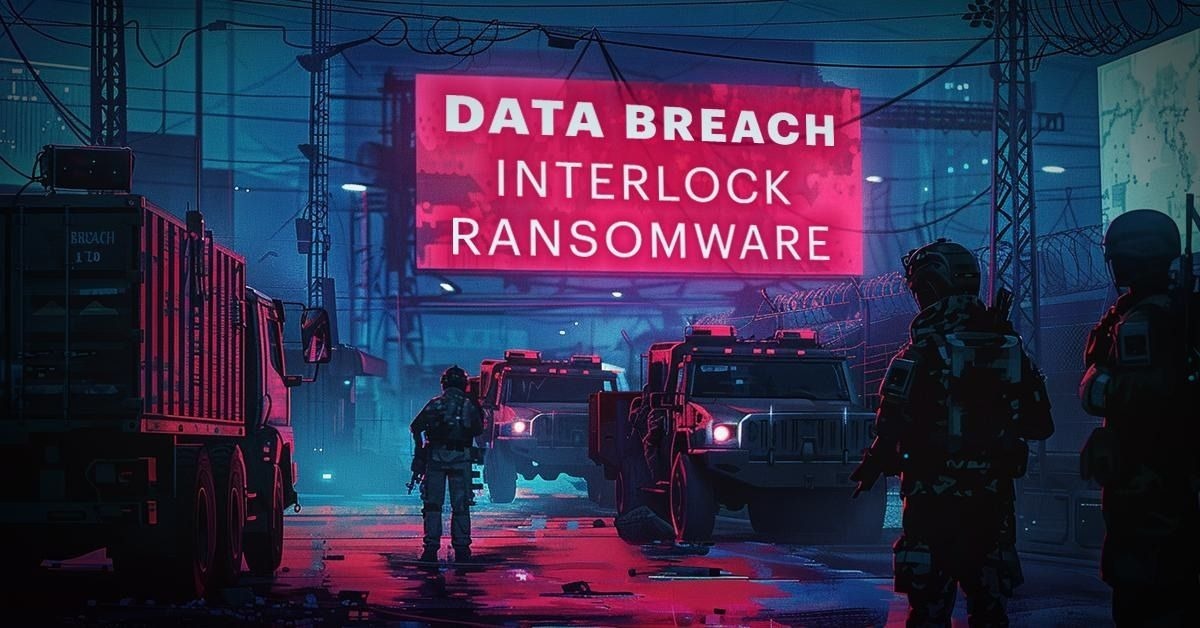# How Interlock Ransomware Affects the Defense Industrial Base Supply Chain
The recent attack by Interlock Ransomware on a defense contractor has sent shockwaves through the global defense supply chain, exposing sensitive information about top contractors and their clients. This incident highlights the vulnerability of critical infrastructure in the defense sector to ransomware attacks, with far-reaching implications for national security, operational efficiency, financial stability, trust, and brand reputation.
The attack on the defense contractor not only uncovered details about the supply chains and operations of many other top defense contractors globally but also revealed sensitive information that could be of interest to foreign intelligence agencies, nation-state actors, and advanced espionage groups. This is particularly concerning during times of local conflicts and ongoing wars, where access to classified information can provide a strategic advantage.
Leaked documents from Interlock Ransomware's dataset included references to some of the world's top global defense corporations, such as Hanwha, German Aerospace, Leonardo, PW Defence, Raytheon, Simmel Difesa, SpaceX, SE Corporation, Thales, Talley Defense, and QinetiQ. These companies rely on complex supply chains that involve numerous contractors, subcontractors, and third-party vendors, creating a web of vulnerabilities that can be exploited by cyber-attackers.
Ransomware groups have been known to form alliances with state actors, using cyber-attacks as cover for espionage or strategic disruption attacks. The combination of high financial rewards, access to sensitive data, and potential for strategic impact makes defense contractors attractive targets for ransomware groups. In the past, such attacks have resulted in significant financial losses, reputational damage, and compromised national security.
Experts emphasize the need for robust cybersecurity measures and CMMC (Defense Industrial Base Acquisition Security Act) implementation to mitigate risks and protect critical assets. Continuous monitoring, collaboration between the public and private sectors, and awareness-raising are essential to prevent similar incidents in the future.
The implications of Interlock Ransomware's attack on the defense industrial base supply chain cannot be overstated. As we move forward, it is crucial that policymakers, industry leaders, and cybersecurity experts work together to address these vulnerabilities and ensure the security and integrity of our nation's critical infrastructure.
